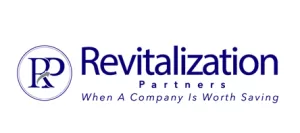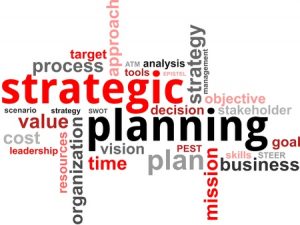 Some time ago, we published a blog about “Sustainable Success” in which we discussed steps that CEO’s must take to change their approach in dealing with the status quo and moving the company forward.
Some time ago, we published a blog about “Sustainable Success” in which we discussed steps that CEO’s must take to change their approach in dealing with the status quo and moving the company forward.
Most companies have a goal of achieving Sustainable Success, however achieving it may or may not include an objective of creating “Sustainable Value”.
Sustainable Success …
For example, Sustainable Success for some CEO’s means operating their company in a way to make sure they achieve an adequate profit to take home a certain amount of money in salaries, perks and dividends.
Some CEO’s operate their company with the objective of minimizing the amount of income taxes they are required to pay. While other CEO’s operate their companies with the objective to maximize earnings and build the value of their business.
What’s Your Objective?
Many private companies are owned and managed by a small group of individuals or family members. In some cases, the ownership group has a significant amount of their net worth invested in the business they operate.
 Ultimately, the ownership group starts to plan and look for an exit strategy to monetize their investment for retirement and/or estate planning purposes, or to pass the company to the next generation.
Ultimately, the ownership group starts to plan and look for an exit strategy to monetize their investment for retirement and/or estate planning purposes, or to pass the company to the next generation.
The objective of creating sustainable value is to improve the value of a company so that when a plan to exit the company is executed, the value is maximized for the benefit of the owners.
Creating Sustainable Value …
Creating sustainable value not only involves improving the profitability of a company. It should also include a comprehensive approach to managing the business in a manner that improves profitability and proactively addresses issues that might be an impediment to creating value.
For example, sometimes profitable companies find themselves in a position where they do not have an adequate line of credit to support their growth initiatives.
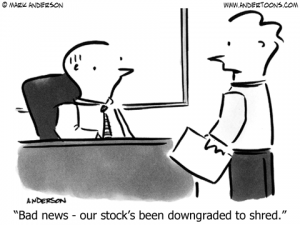 They also might be in a situation where their current lender is not in a position to support their growth initiatives, or may not be comfortable with an expansion into an industry segment the lender views as “too risky”.
They also might be in a situation where their current lender is not in a position to support their growth initiatives, or may not be comfortable with an expansion into an industry segment the lender views as “too risky”.
Proactively assessing your current lender’s ability to support your growth initiatives is an important element in insuring you have the proper financial structure to support the plan to build value in your business. If your current lender cannot support your effort, it is important to be proactive and find a new lender that can.
What Is Your Plan?
Another significant element in building value is to establish a strategic plan for your business. There is a big difference between having a strategic plan and an operating plan.
A strategic plan is established based on long-term (three to five years) objectives that outline where management wants to take the business, how they will get there and how they will know when they have achieved the plan.
An operating plan is usually short term (12 months) and outlines the specific operational objectives set forth in the strategic plan. Taking the time to develop a strategic plan is an important element of building long term value in a business.
Team Working Together?
Another obstacle is the lack of management cohesiveness. The best plan to build value can be sidetracked by management infighting, or significant emotional or personality differences between management team members. 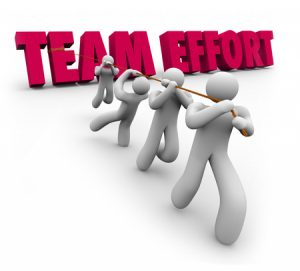
A lack of buy-in or difference of opinion on how key objectives will be accomplished could render the group ineffective, unless the problems are addressed.
Seeking outside help in addressing these problems may be necessary to either resolve the conflicts, or to determine if some conflicts are not resolvable and a change in one or more members of management may be necessary.
Protecting Your Assets?
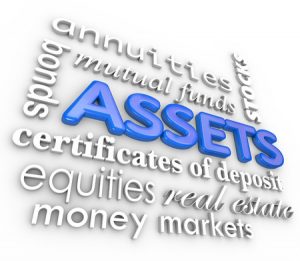 An additional value consideration is protecting the assets of the company, particularly intellectual property, especially proprietary technology.
An additional value consideration is protecting the assets of the company, particularly intellectual property, especially proprietary technology.
Companies should have a plan in place to protect their assets, including a disaster recovery plan, business interruption insurance and securing proprietary technology from theft by outside or internal elements.
There are many more value considerations that we could mention. The points outlined here relate to our experience in working with a number of profitable companies over the years and provide insight into the steps any company should be taking to build “Sustainable Value”.
If you would like to hear more on this important topic, let us know.
Revitalization Partners is a Northwest business advisory and restructuring management firm with a demonstrated track record of achieving the best possible outcomes for our clients. We specialize in improving the operational and financial results of companies and providing hands-on expertise in virtually every circumstance, with a focus on small and mid-market organizations. Whether your requirement is Interim Management, a Business Assessment, Revitalization and Reengineering or Receivership/Bankruptcy Support, we focus on giving you the best resolution in the fastest time with the highest possible return.
